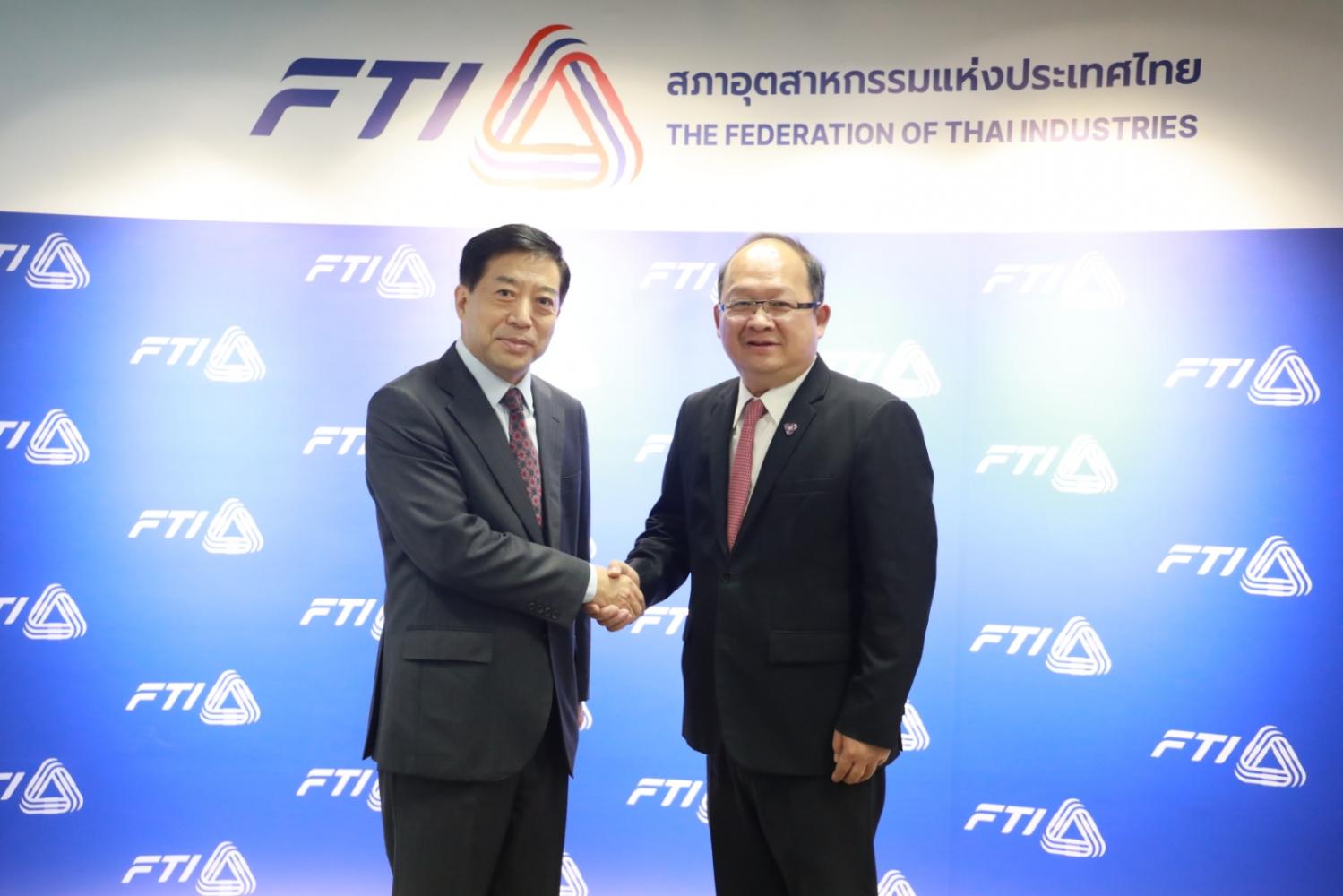
The Federation of Thai Industries (FTI) wants to increase Chinese investment in Thailand, especially in the electric vehicle (EV), food and healthcare segments, by advocating more business cooperation with Beijing.
"We recently met Chinese ambassador to Thailand Han Zhiqiang and talked about investment opportunities in Thailand," said Kriengkrai Thiennukul, chairman of the FTI.
He believes Thailand can be a production base for Chinese companies, serving as a gate to Asean.
The FTI set up a Thai-Chinese economic institute to promote investments and trade between the two countries.
The new institute works with other agencies, including the China Council for the Promotion of International Trade, to initiate and push ahead with new trade and investment promotion projects.
Prospective investors will be introduced to 45 industry clubs under the FTI as well as logistics and supply chain systems that can support their businesses.
"FTI expects this collaboration will improve Thailand's competitiveness on the global stage and further strengthen domestic industries," said Mr Kriengkrai.
Among key industries in Thailand is EV manufacturing which is being promoted by the government.
Last year, the cabinet approved a package of incentives including tax cuts and subsidies to promote EV consumption and production between 2022-2023.
The subsidies range from 70,000 baht to 150,000 baht depending on the type and model of vehicle, while there will be lower excise taxes and import duties on completely knocked down and completely built up units.
"We asked the Chinese government to support Thailand's goal to become a major EV production and export base," said Mr Kriengkrai, adding many EV manufacturers from China have already invested in Thailand.
The National EV Policy Committee announced in 2021 it wants EVs to constitute 50% of locally made vehicles by 2030, part of an ambitious plan to make Thailand a regional EV hub.
Food and healthcare businesses can also attract investors because they have the potential to grow.
Thailand is rich with raw materials for food processing, which can support plans to develop "future food", or new food products that match people's lifestyles, said Mr Kriengkrai.
Healthcare is also expected to see bright business prospects as it relates to aged or ageing societies, he said.